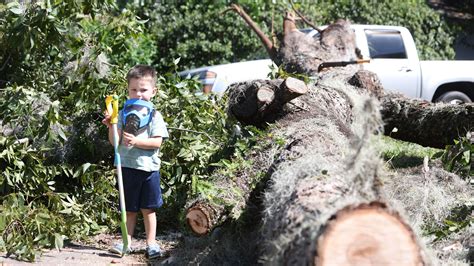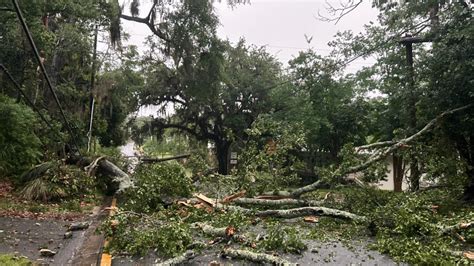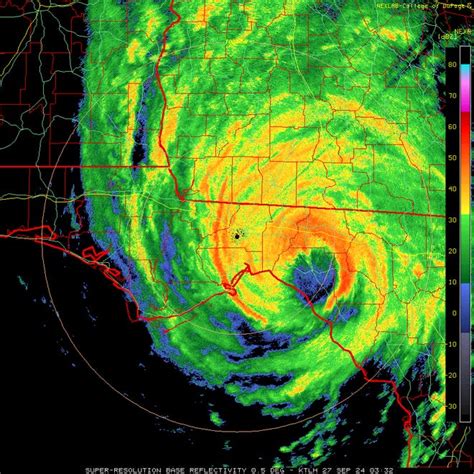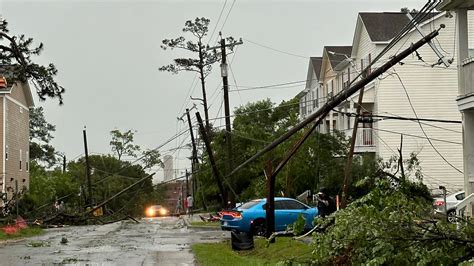Helene Damage Tallahassee

Helene is not a term associated with damage in Tallahassee, but rather, it appears to be a reference to a name and a location. However, considering the context, it's possible that the query is related to Hurricane Helene, which has affected various parts of the world, including the United States. Tallahassee, being the capital of Florida, is prone to hurricanes due to its geographical location. To provide relevant information, let's delve into the topic of hurricanes and their impact on cities like Tallahassee.
Hurricane Impacts on Tallahassee

Tallahassee, Florida, experiences a subtropical climate, with hot, humid summers and mild winters. The city is susceptible to hurricanes, which can bring about significant damage due to strong winds, heavy rainfall, and storm surges. The Atlantic hurricane season, which runs from June 1 to November 30, is a period of concern for residents and authorities in Tallahassee. Hurricanes can cause widespread destruction, including power outages, property damage, and disruption of essential services.
Understanding Hurricane Categories
Hurricanes are classified into five categories based on their wind speed, central pressure, and potential damage. The categories range from Category 1 (winds of 74-95 mph) to Category 5 (winds of 157 mph or higher). Understanding these categories is crucial for predicting the potential impact of a hurricane and taking necessary precautions. For instance, a Category 3 hurricane or higher can cause significant damage to buildings, infrastructure, and the environment.
| Hurricane Category | Wind Speed | Potential Damage |
|---|---|---|
| Category 1 | 74-95 mph | Minimal damage to buildings, some damage to trees and power lines |
| Category 2 | 96-110 mph | Some roofing material, door, and window damage to buildings, considerable damage to vegetation, some power lines downed |
| Category 3 | 111-129 mph | Some structural damage to large buildings, especially those with exposed windows, some apartment buildings may be damaged, mobile homes destroyed, foliage destroyed |
| Category 4 | 130-156 mph | Extensive damage to small buildings, low-lying roads inland may be flooded, some structural damage to large buildings, especially those with flat roofs |
| Category 5 | 157 mph or higher | Catastrophic damage will occur, a high percentage of framed homes will be destroyed, with total roof failure and wall collapse, fallen trees and power poles will isolate residential areas |

In the context of Helene and damage in Tallahassee, if we're referring to a hypothetical or past event involving a storm named Helene, understanding the category of the hurricane and its potential impact is crucial. However, without specific details about the event, it's challenging to provide precise information on the damage caused. Hurricanes, in general, pose a significant threat to cities like Tallahassee, and preparedness is key to mitigating damage and ensuring public safety.
Preparedness and Response

Preparedness is critical in minimizing the impact of hurricanes. This includes having a plan for evacuation, stocking up on supplies such as food, water, and first aid kits, and staying informed about weather updates. The City of Tallahassee and surrounding areas have emergency management plans in place, which include evacuation routes, shelters, and protocols for responding to hurricane-related emergencies. Understanding these plans and being prepared can significantly reduce the risk of injury or property damage.
Technological Advancements in Hurricane Prediction
Technological advancements have improved the accuracy of hurricane predictions, allowing for earlier warnings and better preparation. Satellites, radar, and computer models are used to track hurricanes and predict their path and intensity. These advancements have been instrumental in saving lives and reducing damage. For example, improvements in storm surge modeling have enabled more accurate predictions of coastal flooding, helping authorities to issue targeted evacuation orders.
What should I do to prepare for a hurricane in Tallahassee?
+To prepare for a hurricane in Tallahassee, ensure you have a comprehensive emergency plan, including a supply kit with essential items such as food, water, first aid supplies, and a battery-powered radio. Stay informed about the storm's progress, and follow evacuation orders if issued. Trim or remove trees and shrubs that could cause damage, secure outdoor furniture and decorations, and consider installing storm shutters or impact-resistant windows.
How can I stay safe during a hurricane?
+Staying safe during a hurricane involves seeking shelter in a sturdy building, away from windows and doors. Avoid walking or driving through floodwaters, as they can be contaminated with sewage, chemicals, and electrical hazards. Keep phone lines open for emergency calls, and avoid using candles or open flames, as they can ignite gas leaks or other flammable materials.
In conclusion, while the query about Helene and damage in Tallahassee may not directly reference a specific event, understanding the impact of hurricanes on the city and the importance of preparedness is crucial. By knowing the potential damage associated with different hurricane categories and taking proactive steps to prepare, residents can significantly reduce their risk of injury or property damage. Staying informed and following evacuation orders, when necessary, are also critical components of hurricane safety.



